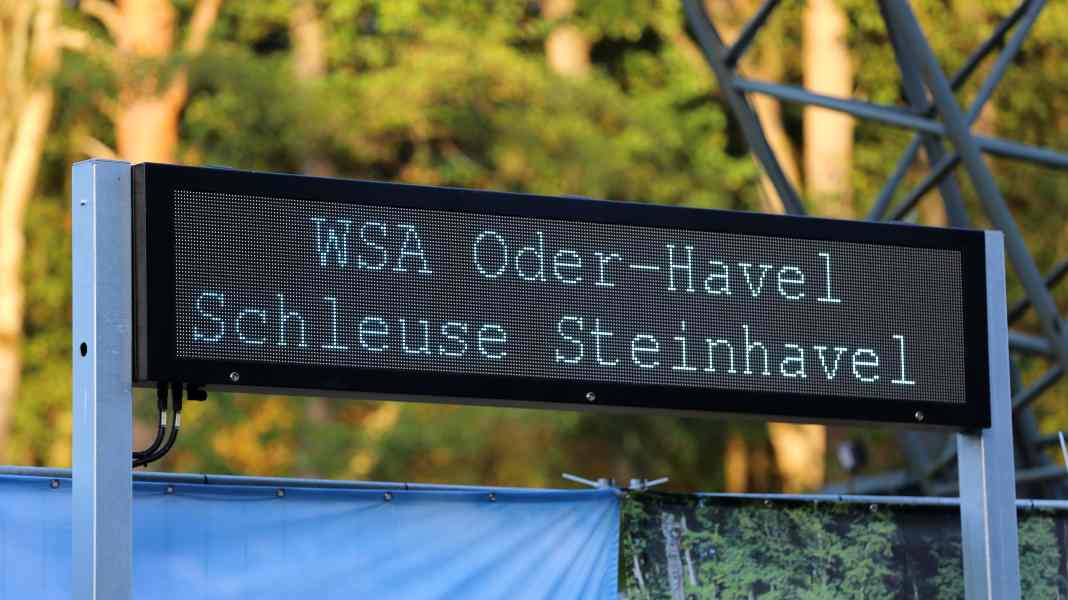
Now nothing stands in the way of a relaxed charter season. Kuhnle-Tours is planning to hire 24 temporary lock keepers at short notice to ensure the operation of the six affected locks until 9 p.m. during the peak season.
The news that the operating times of some locks on the Mecklenburg Lake District and the Upper Havel Waterway were to be shortened during the high season of all times had unsettled and outraged many boaters. In order to prevent long traffic jams or even the closure of the entire Müritz-Havel waterway between Berlin and Müritz, the charter company Kuhnle-Tours took action without further ado: Last week, it advertised vacancies for unskilled labourers to operate the six locks at Mirow, Diemitz, Canow, Strasen, Wesenberg and Steinhavel. And with success. The new temporary lock keepers are to be trained from Monday and will take over the second shift in lock operation from 17 June to enable longer lockage times.
Also interesting:
Temporary staff to cover the evening hours
The responsible authority, the Waterways and Shipping Office, only has staff for regular operations from 9 am to 6 pm. "If the lock closes at 6 p.m., many people can no longer get through and have to spend the night in front of it," says Dagmar Rockel-Kuhnle from Kuhnle-Tours. Over time, a huge clog would form that can no longer be cleared because more boats arrive every day. In the job advertisement for the Summer job lock keeper from Thursday last week (30 May) therefore states that the second shift should be covered from 3.30 pm to 9 pm. "From 7 a.m. to 4.15 p.m., a WSA lock attendant will be there. The handover then takes place during the overlap time. So we support the WSA," explains Dagmar Rockel-Kuhnle. The aim is to employ four temporary lock keepers for each of the six locks with different hourly quotas; a lock keeper who takes on three to six shifts a week and three other temporary staff who work an afternoon shift on one, two or three days.
Enough applicants, too much bureaucracy
By Monday 3 June, the charter company had already received over 20 applications. The shift had previously been advertised twice by the WSA, but there were no vacancies for direct applications for lock keepers. Only companies that were to provide lock keepers were approached and no company had applied. The WSA had previously tried unsuccessfully to obtain additional jobs for the locks; this was not authorised by the higher authority. According to Dagmar Rockel-Kuhnle, this is incomprehensible: "We have been seeing reduced operating times here for over three years due to a lack of staff, and it is getting worse every year. This problem is not down to the local authorities, who have done a lot in the past to still be there for boaters, but to the higher administration."
Suddenly things happen quickly
And suddenly everything happens very quickly and unbureaucratically: in the coming week, the applicants will be trained at the six locks. The future lock operators will receive one day of theory lessons and will then be trained for two days at their respective lock by the lock personnel of the Havel-Oder Waterways and Shipping Office, with the training period being paid for by the charter company Kuhnle-Tours. If the WSA is satisfied with the level of training, the locks will then go into regular high season operation from 7 a.m. to 9 p.m. from 17 June. The part-time lock keepers should be working until 31 August.
The locks affected are among the most frequently used in Germany. Shorter operating times and restrictions on water tourism would have considerable economic consequences. But it's not just about tourism, explains Rockel-Kuhnle. "Mecklenburg-Western Pomerania and Brandenburg are very rural. The only thing we really have here for leisure is boating. We also do this for our employees and neighbours in order to maintain the quality of life in rural areas. That is often overlooked. It's also about the people who live here and want to go fishing after work or water skiing on Sundays."

